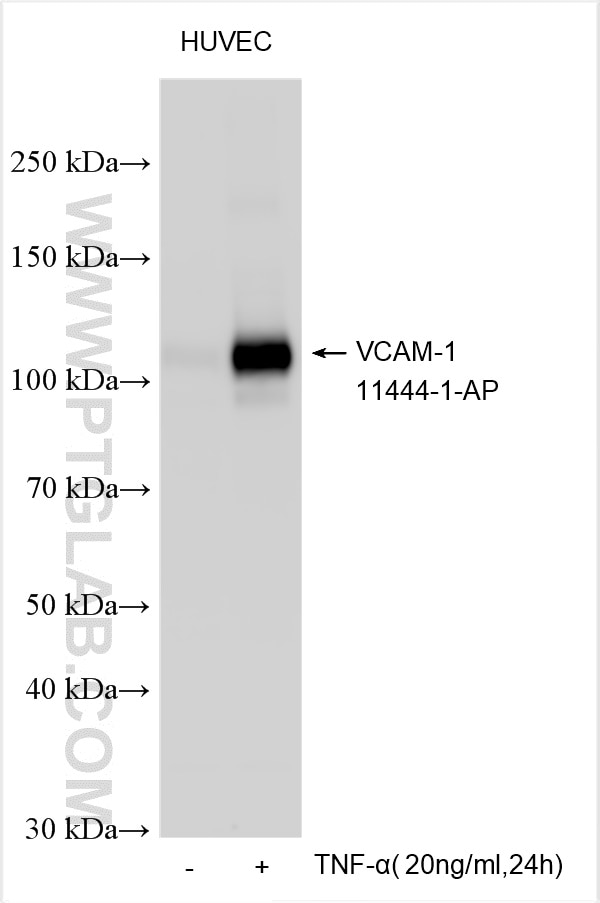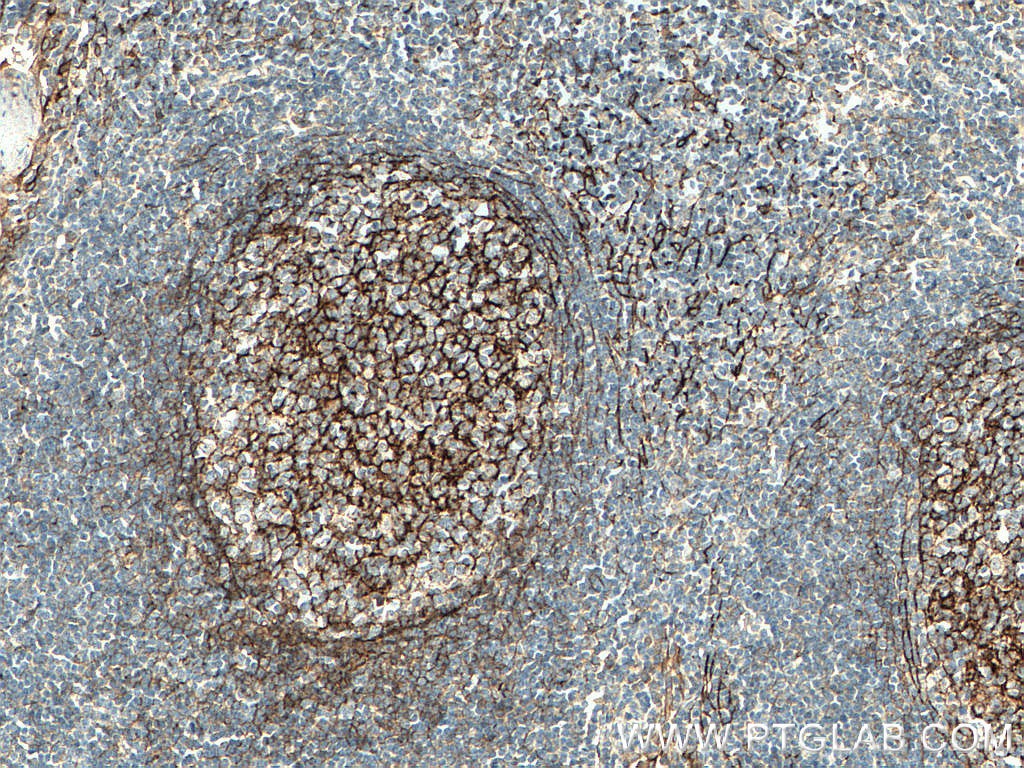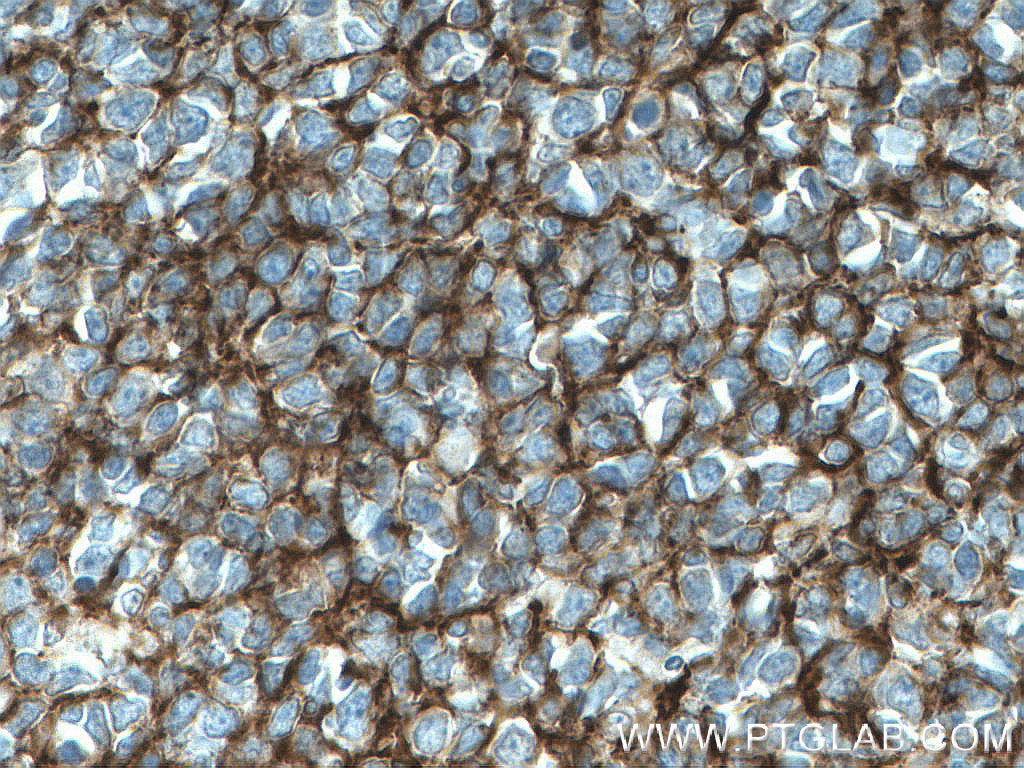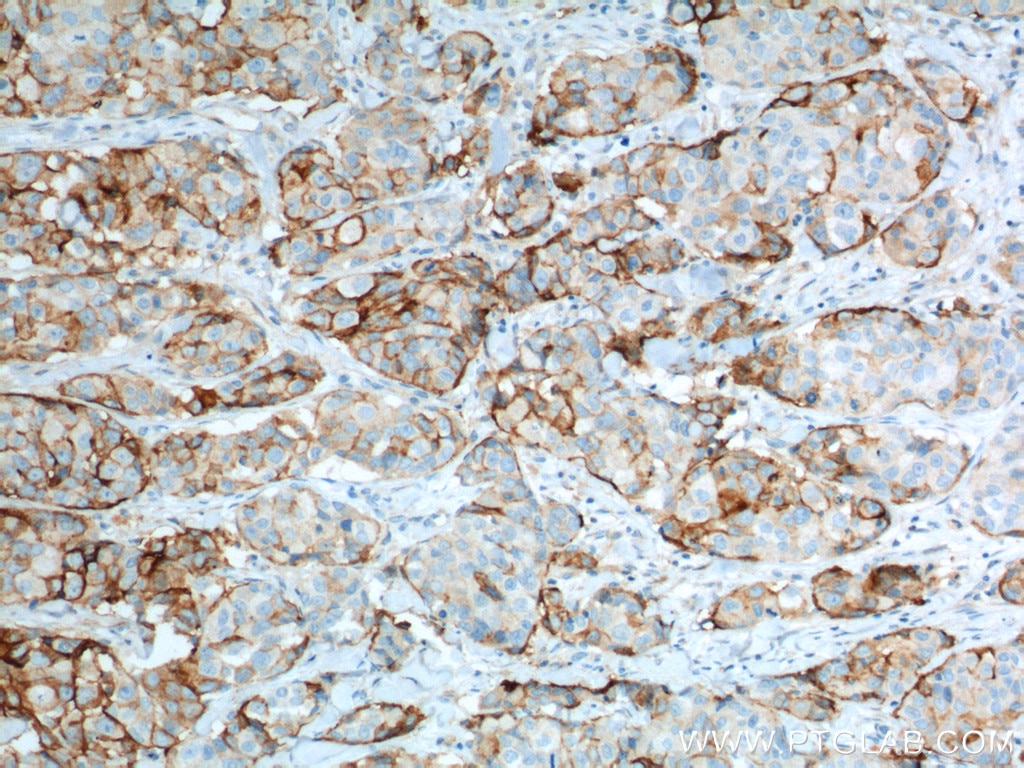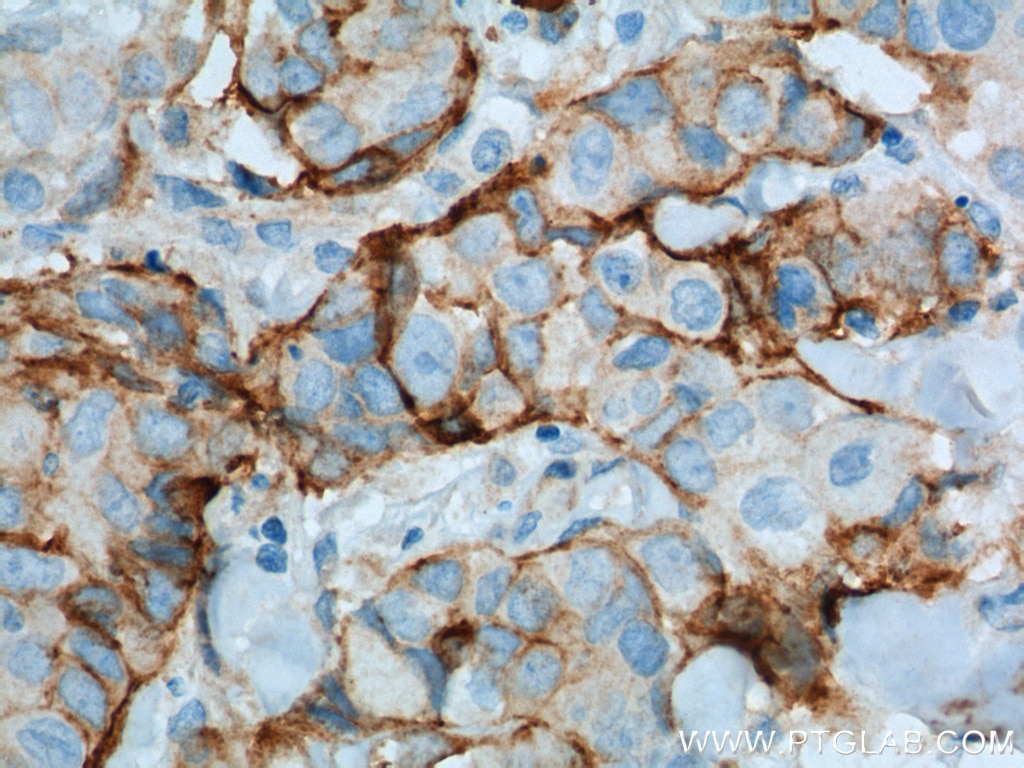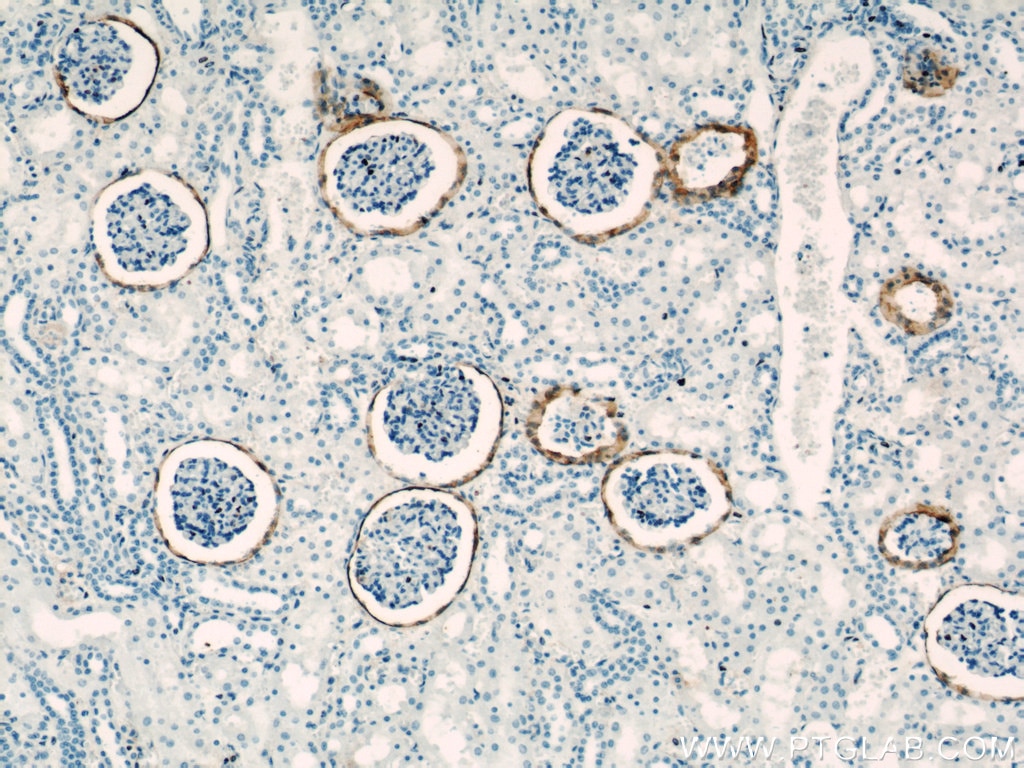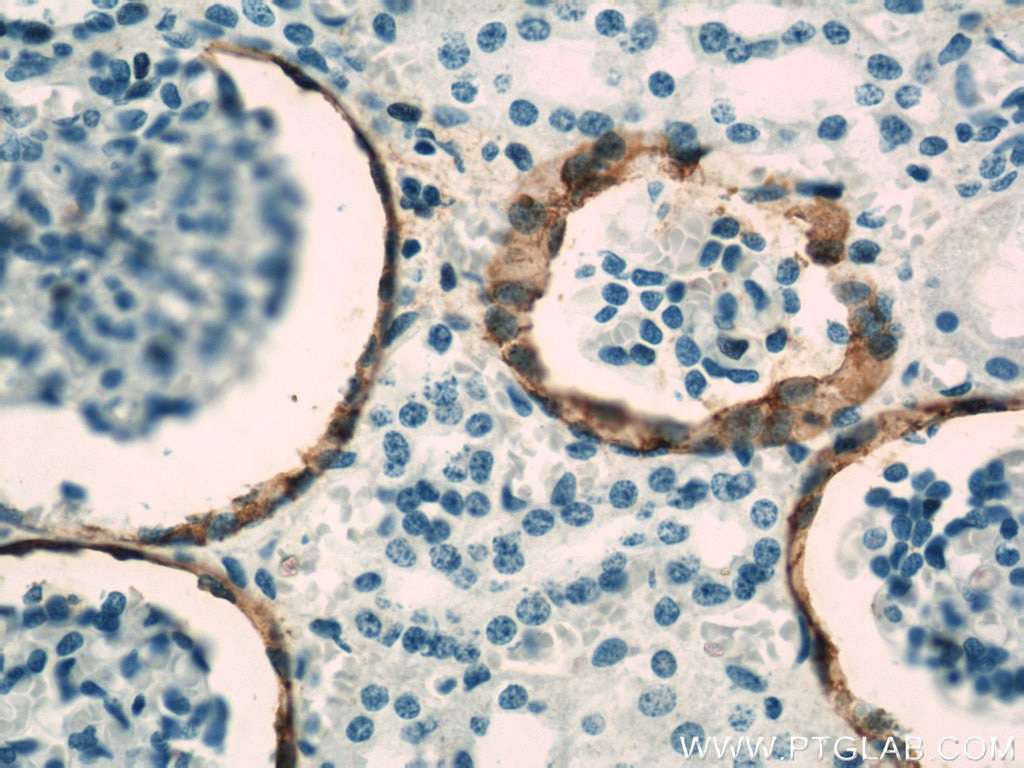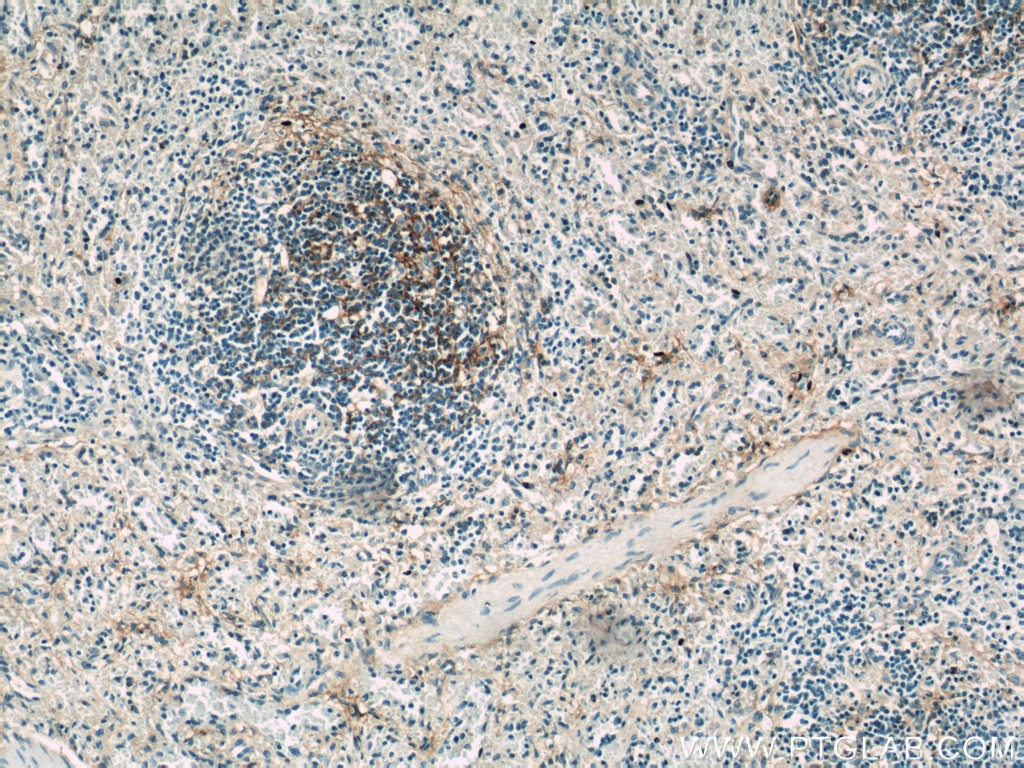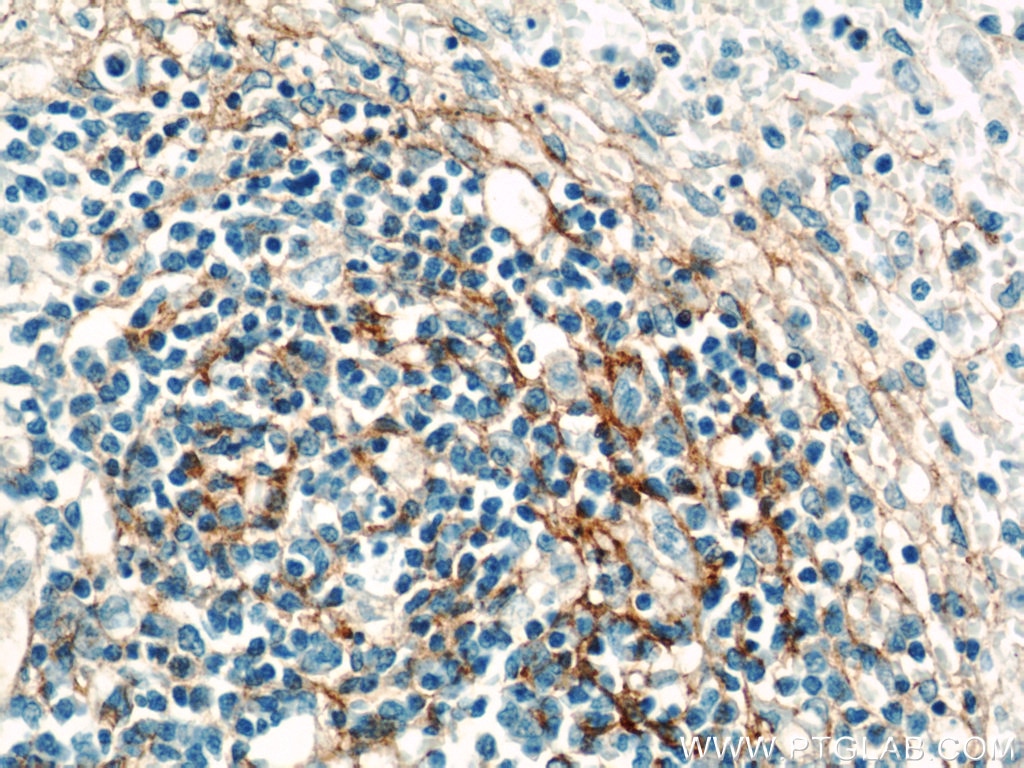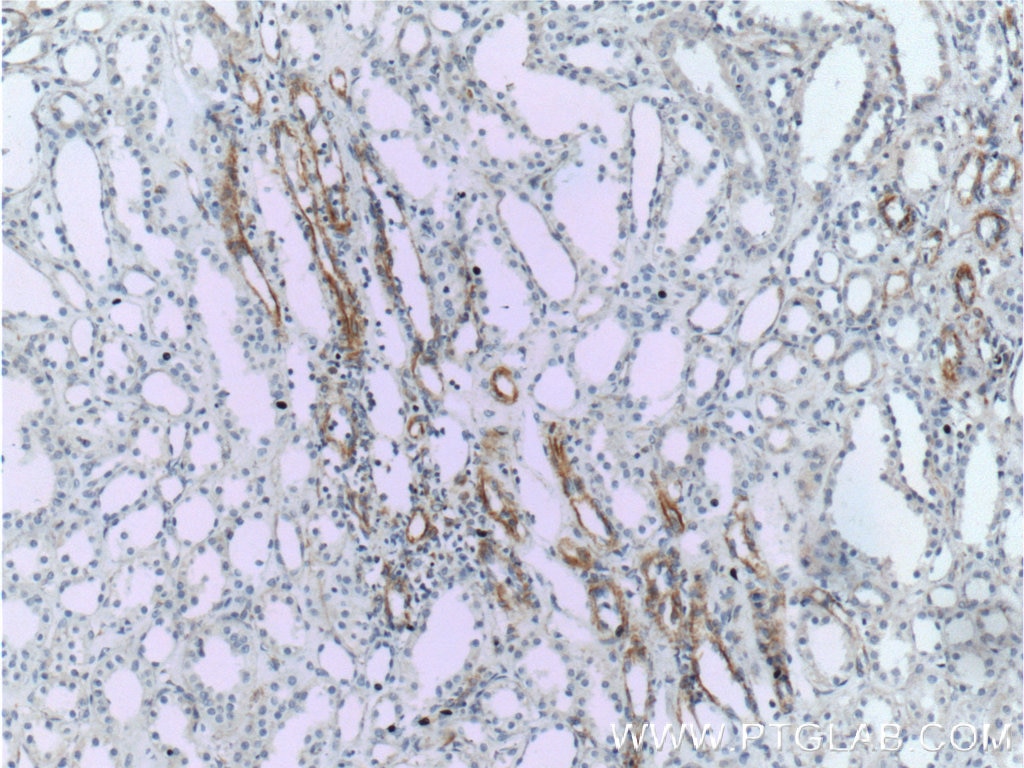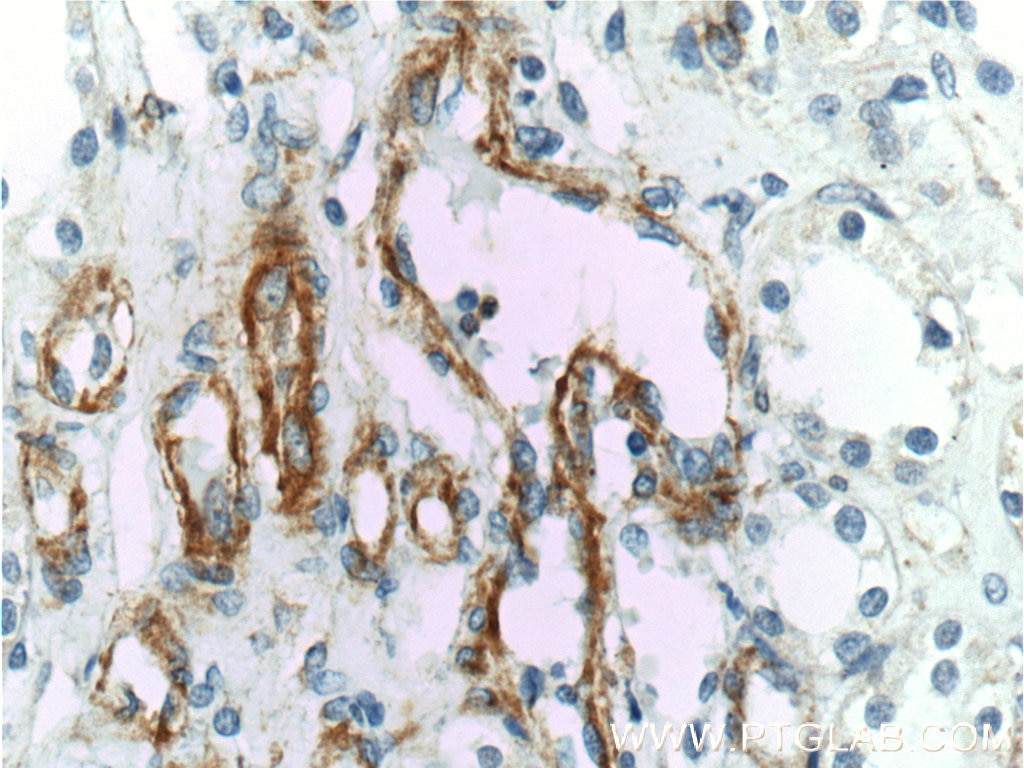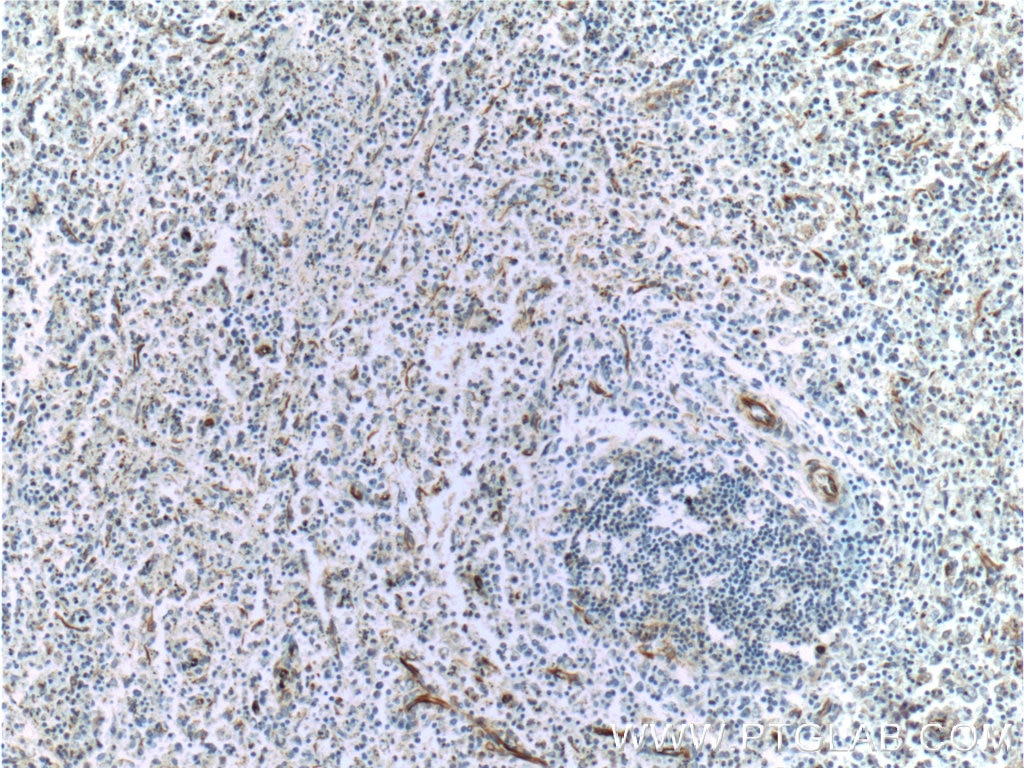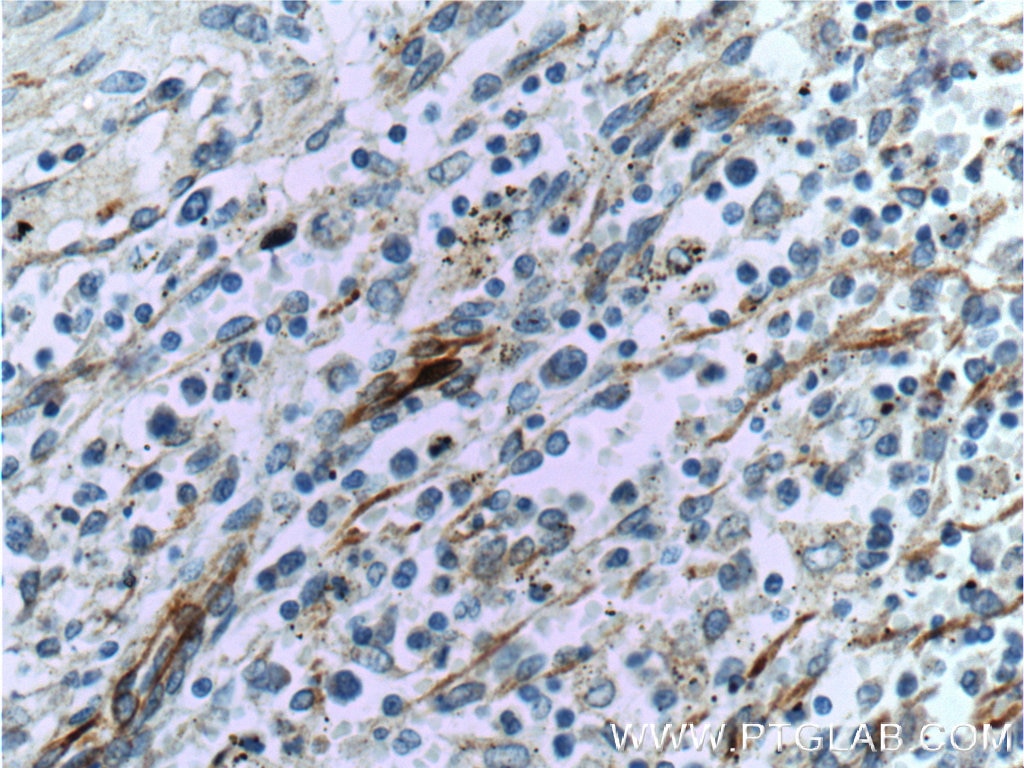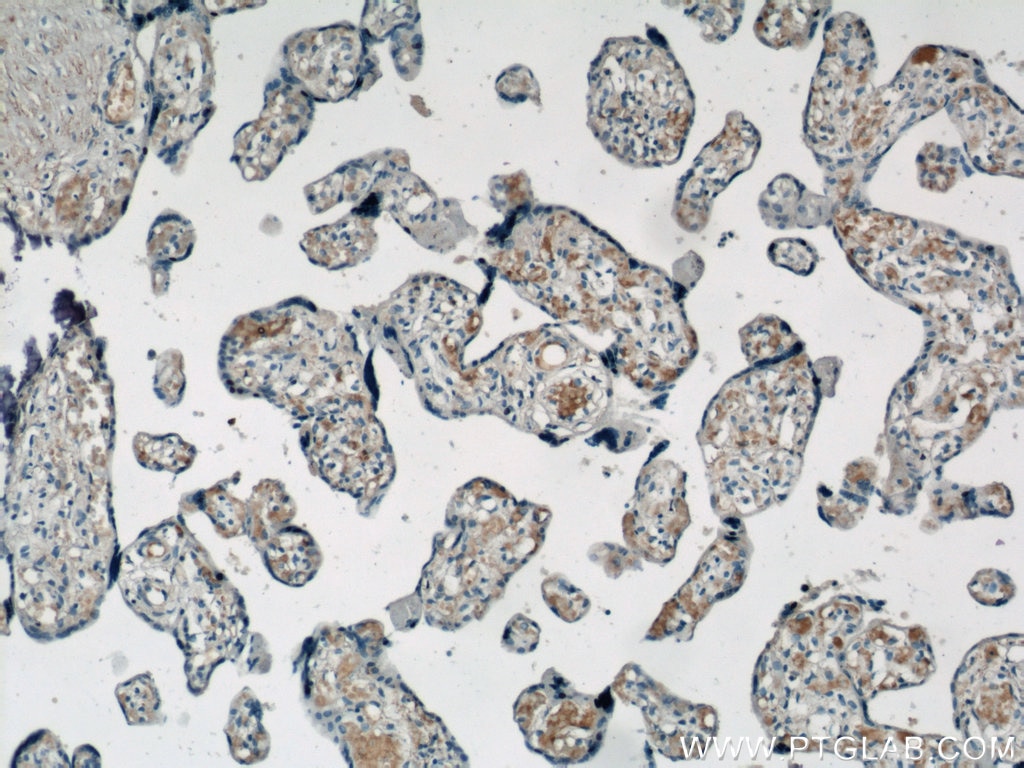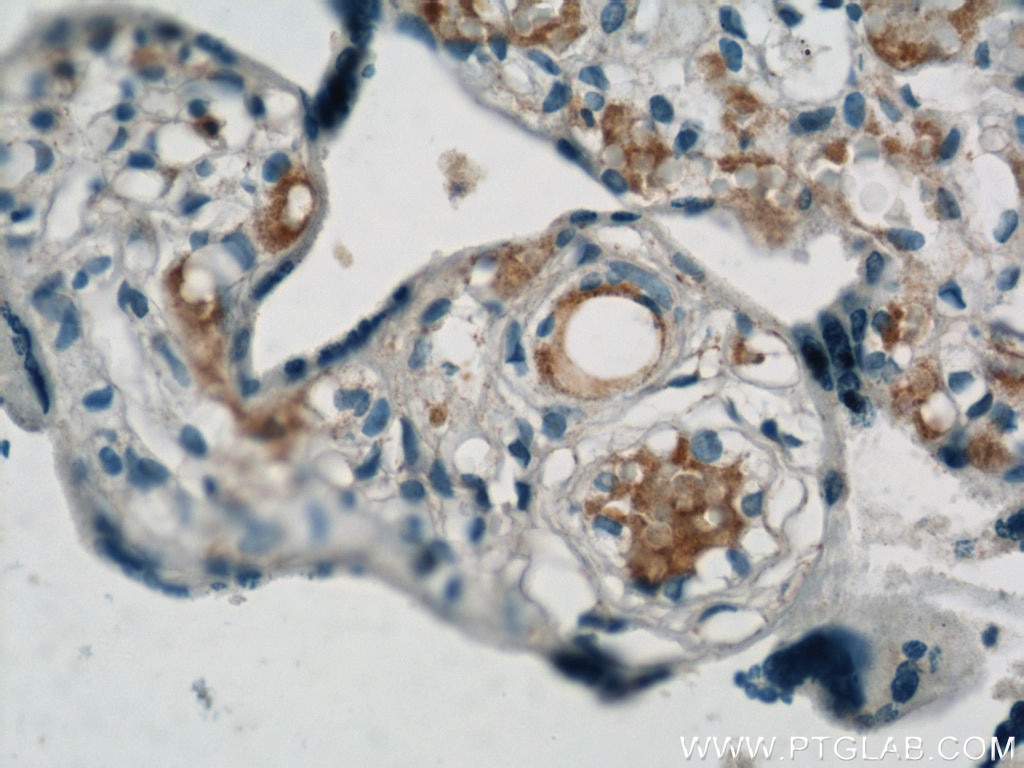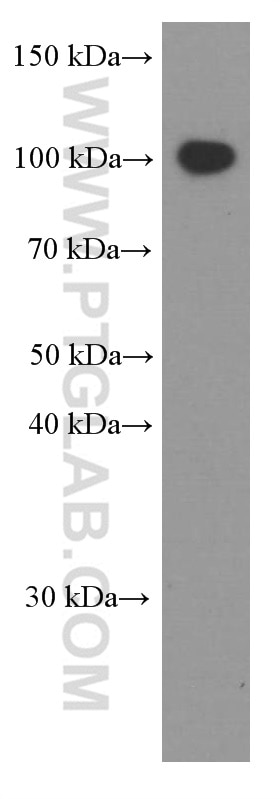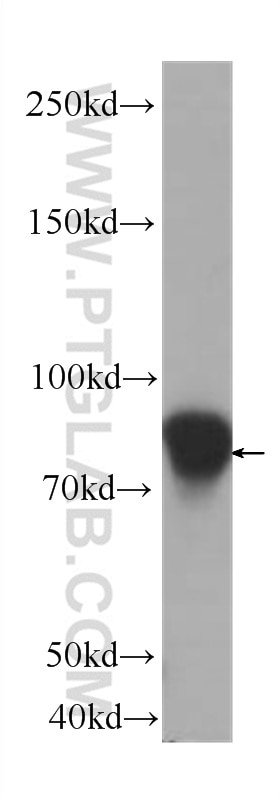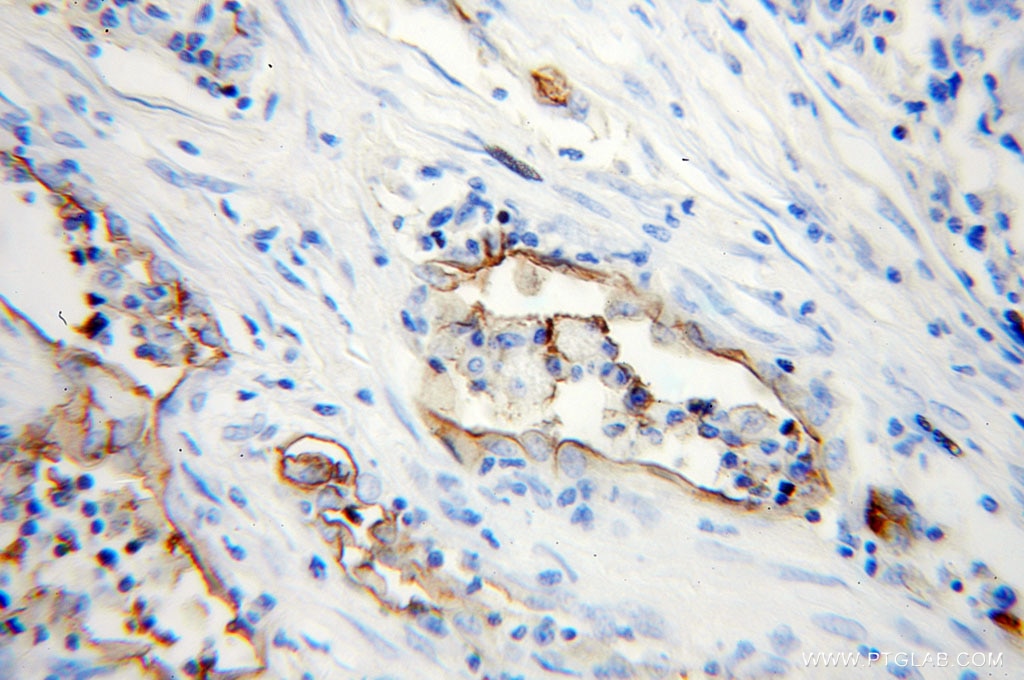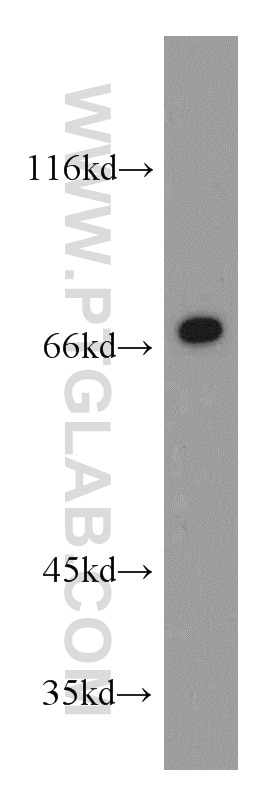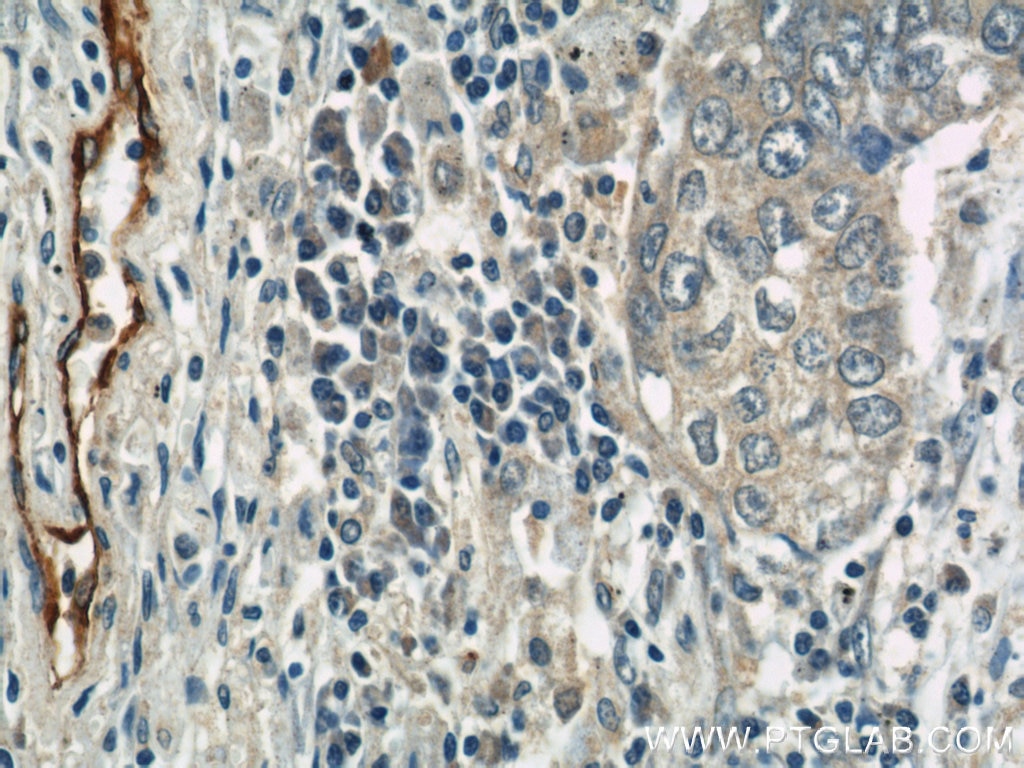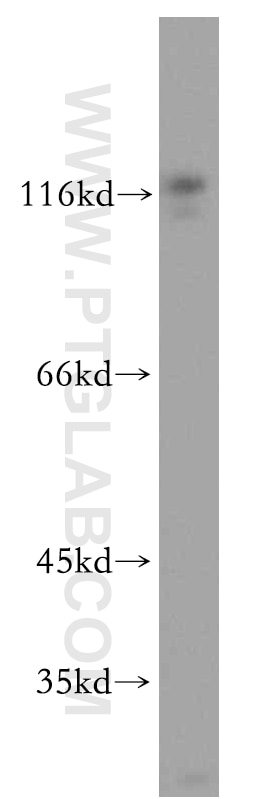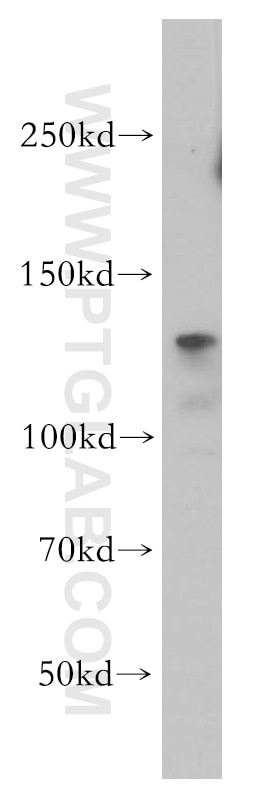- Phare
- Validé par KD/KO
Anticorps Polyclonal de lapin anti-VCAM-1
VCAM-1 Polyclonal Antibody for IHC, ELISA
Hôte / Isotype
Lapin / IgG
Réactivité testée
Humain
Applications
IHC, ELISA, IF
Conjugaison
Non conjugué
N° de cat : 11444-1-AP
Synonymes
Galerie de données de validation
Applications testées
| Résultats positifs en WB | TNF alpha treated HUVEC cells, |
| Résultats positifs en IHC | tissu d'amygdalite humain, tissu de cancer du poumon humain, tissu placentaire humain, tissu rénal humain, tissu splénique humain il est suggéré de démasquer l'antigène avec un tampon de TE buffer pH 9.0; (*) À défaut, 'le démasquage de l'antigène peut être 'effectué avec un tampon citrate pH 6,0. |
Dilution recommandée
| Application | Dilution |
|---|---|
| Western Blot (WB) | WB : 1:500-1:2000 |
| Immunohistochimie (IHC) | IHC : 1:400-1:1600 |
| It is recommended that this reagent should be titrated in each testing system to obtain optimal results. | |
| Sample-dependent, check data in validation data gallery | |
Applications publiées
| KD/KO | See 2 publications below |
| IHC | See 21 publications below |
| IF | See 20 publications below |
| FC | See 1 publications below |
Informations sur le produit
11444-1-AP cible VCAM-1 dans les applications de IHC, ELISA, IF et montre une réactivité avec des échantillons Humain
| Réactivité | Humain |
| Réactivité citée | Humain |
| Hôte / Isotype | Lapin / IgG |
| Clonalité | Polyclonal |
| Type | Anticorps |
| Immunogène | VCAM-1 Protéine recombinante Ag1993 |
| Nom complet | vascular cell adhesion molecule 1 |
| Masse moléculaire calculée | 739 aa, 81 kDa |
| Poids moléculaire observé | 110 kDa |
| Numéro d’acquisition GenBank | BC017276 |
| Symbole du gène | VCAM-1 |
| Identification du gène (NCBI) | 7412 |
| Conjugaison | Non conjugué |
| Forme | Liquide |
| Méthode de purification | Purification par affinité contre l'antigène |
| Tampon de stockage | PBS avec azoture de sodium à 0,02 % et glycérol à 50 % pH 7,3 |
| Conditions de stockage | Stocker à -20°C. Stable pendant un an après l'expédition. L'aliquotage n'est pas nécessaire pour le stockage à -20oC Les 20ul contiennent 0,1% de BSA. |
Informations générales
Vascular cell adhesion molecule 1 (VCAM1), also known as CD106, is a 110-kDa transmembrane glycoprotein belonging to the immunoglobulin gene superfamily. VCAM1 is expressed by cytokine-activated endothelium, interacts with integrin VLA4 (α4β1) present on the surface of leukocytes, and mediates both adhesion and signal transduction. It is also expressed either constitutively or inducibly in a variety of other cell types, including vascular smooth muscle cells, differentiating skeletal muscle cells, renal and neural epithelial cells, macrophages (Kupffer cells), dendritic cells, and bone marrow stromal cells (PMID: 7507076, 11359843).
Protocole
| Product Specific Protocols | |
|---|---|
| WB protocol for VCAM-1 antibody 11444-1-AP | Download protocol |
| IHC protocol for VCAM-1 antibody 11444-1-AP | Download protocol |
| Standard Protocols | |
|---|---|
| Click here to view our Standard Protocols |
Publications
| Species | Application | Title |
|---|---|---|
EBioMedicine Interactions between neutrophil extracellular traps and activated platelets enhance procoagulant activity in acute stroke patients with ICA occlusion. | ||
Aging Dis Sterol-resistant SCAP Overexpression in Vascular Smooth Muscle Cells Accelerates Atherosclerosis by Increasing Local Vascular Inflammation through Activation of the NLRP3 Inflammasome in Mice. | ||
ACS Appl Mater Interfaces Inflammation-Driven Nanohitchhiker Enhances Postoperative Immunotherapy by Alleviating Prostaglandin E2-Mediated Immunosuppression | ||
Br J Pharmacol Substitution of the SERCA2 Cys(674) reactive thiol accelerates atherosclerosis by inducing endoplasmic reticulum stress and inflammation | ||
Br J Pharmacol Functional interplay between LXR and AMPKα inhibits atherosclerosis in apoE deficient mice - A new anti-atherogenic strategy. |
